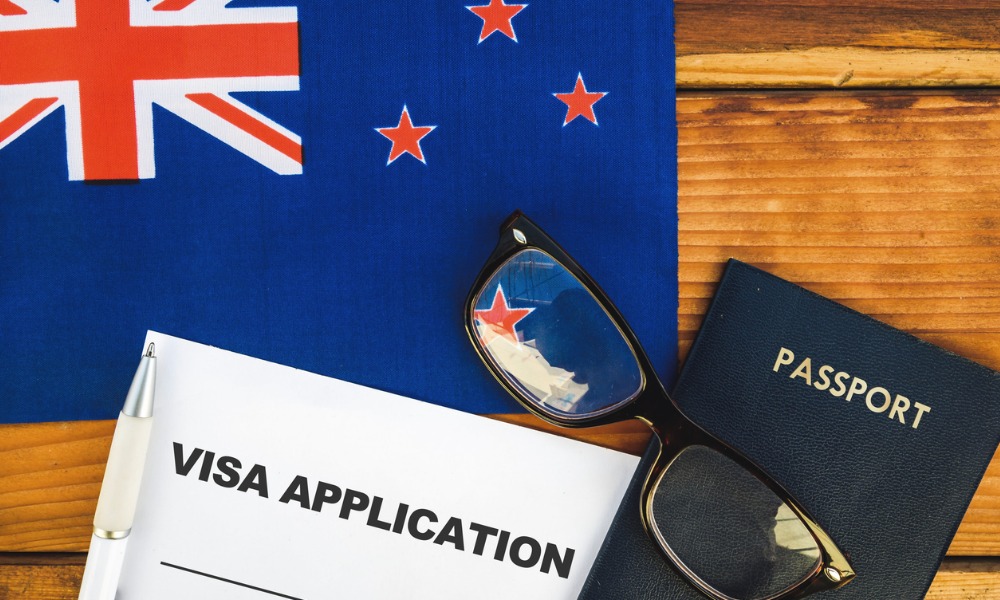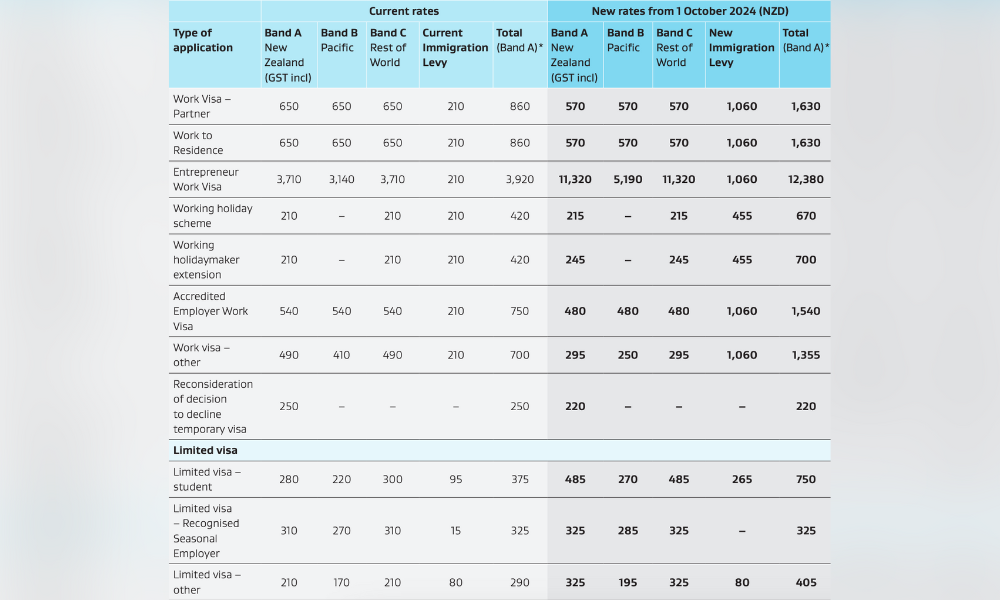
Changes 'reflect the costs associated with visa processing, assessing, and managing more high-risk applications,' says government

The New Zealand government has announced a hike to visa fees starting in October in a bid to free up more than $500 million over the next four years.
Individuals applying for the Skilled Migrant Category Resident Visa will be charged $6,450 starting October 1, up from the current $4,290.
Applications for the Accredited Employer Work Visa will also be hiked to $1,540, up from the current $750.
Those applying for the working holiday visas will be charged $670, while those applying for the working holidaymaker extension will be charged $700.

Source: Immigration New Zealand
Visa applicants from Pacific countries, however, will continue to see subsidised fees, according to Immigration NZ.
Immigration Minister Erica Stanford said the changes aim to shift the cost of the country's immigration system from taxpayers to those benefiting from it.
"The new charges reflect the costs associated with visa processing, assessing, and managing more high-risk applications, and increased compliance costs as we deal with higher levels of migrant exploitation, managing more asylum claims, and maintaining and upgrading Immigration New Zealand's ICT systems," Stanford said in a statement.
In this shift, the government said it is expecting to free up more than $563 million over the next four years.
"We expect that once further improvements are made to modernise immigration systems in the coming years, the running costs will reduce over time and efficiencies will improve," Stanford said.
New Zealand has been touted as one of the best locations for employees across the world, including digital nomads, due to costs, safety, quality of life, among others.
According to Stanford, the hike in visa fees won't make New Zealand any less attractive globally.
"The charges remain competitive in comparison to countries like Australia and the United Kingdom so we are confident New Zealand will continue to be an attractive destination to live, work, study, and visit," she said.